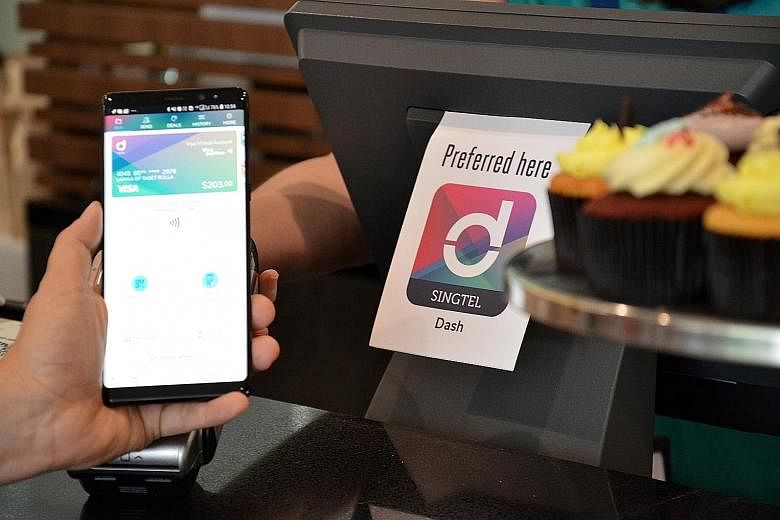Parliament passed a law yesterday that puts more payment services, such as digital payment tokens and merchant acquisition, under the ambit of the Monetary Authority of Singapore (MAS).
Called the Payment Services Act, it will also impose limits on how much e-money can be held in personal mobile wallets, such as GrabPay and Singtel Dash, and how much can be transferred to accounts other than the user's designated bank accounts in a year, among other things.
The new law aims to right-size "regulations depending on the risks posed by the payment service provider", said Mr Ong Ye Kung, an MAS board member, yesterday.
It tailors Singapore's regulations to the licensees' activities, such as account opening, issuing electronic money and transferring money in the Republic and across its borders, added Mr Ong, who is also the Minister for Education.
Risks that the new Act wants to address include terrorism financing, money laundering and cyber risks.
Currently, the MAS regulates payment services under the Payment Systems (Oversight) Act, or PS(O)A, and the Money-changing and Remittance Businesses Act (MCRBA), governing stored value facilities such as ez-link, Nets CashCard and remittances.
The new Act streamlines the regulation of payment services in a single activity-based legislation, and both the PS(O)A and MCRBA will be repealed when the legislation takes effect by the end of this year.
Mobile wallets such as GrabPay and Singtel Dash also cannot hold more than $5,000 at any point in time, and their users cannot transfer more than $30,000 in a year to accounts other than the user's designated bank accounts.
During the debate, three MPs, one Non-Constituency MP (NCMP) and four Nominated MPs (NMPs) spoke in support of the Bill, while raising questions that ranged from new account limits to the inclusion of migrant workers in digital remittances.
NMP Lim Sun Sun, NCMP Leon Perera and Mr Louis Ng (Nee Soon GRC) asked whether more could be done to raise financial literacy and consumer protection levels.
Professor Lim proposed that "public education efforts be stepped up to better communicate to consumers the various options, protections and incentives they enjoy with the different emerging e-payment methods".
Replying, Mr Ong said that "the MAS and other agencies have been reaching out to people... through MoneySense, the national financial education programme".
NMP Anthea Ong highlighted the difficulties migrant workers may face in accessing e-payment solutions and bank accounts.
Mr Ong said he expects more migrant workers to use fintech to remit money overseas and the Bill will "strengthen safeguards for these payment services".
NMP Walter Theseira and Mr Saktiandi Supaat (Bishan-Toa Payoh GRC) asked how the Bill compares with other countries' regulations on e-payment services.
Mr Ong said the "MAS has consciously balanced mitigating risks with promoting innovation".
"The best way to do this is to avoid a one-size-fits-all approach and adopt a risk-based approach (so) that the regulatory requirements... are commensurate with the risk of the business activities."


